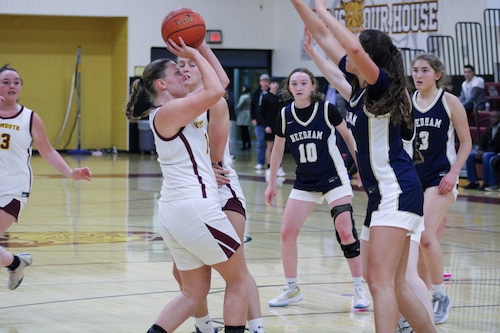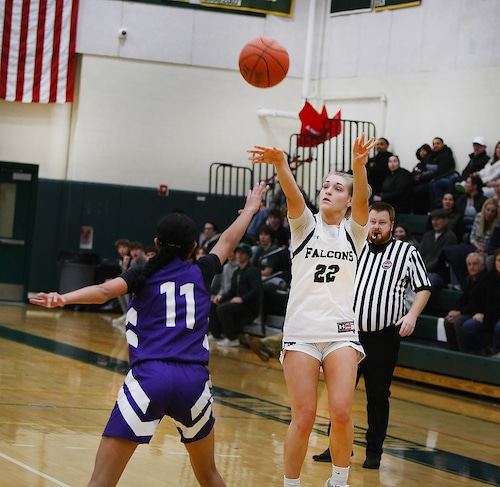The MLB trade deadline arrives Tuesday. Red Sox chief baseball officer Craig Breslow has made it clear that he will try to improve the roster by then.
But no matter what Breslow does between now and then, it’s impossible to imagine that he will make a deal as shocking as the one the Red Sox made 20 years ago this month.
On July 31, 2004, Theo Epstein engineered a complicated four-team deal that reshaped the Red Sox roster, and later that season, helped the franchise win its first championship in 86 years. The trade upgraded the Red Sox infield defense by adding shortstop Orlando Cabrera and first baseman Doug Mientkiewicz, but it also brought a swift and unexpected end to Nomar Garciaparra’s time in Boston.
The deal blindsided everyone, most of all Garciaparra, who scurried to pack his belongings in the visitor’s clubhouse at the Metrodome in Minneapolis and catch a flight to join the Cubs, suddenly his new team.
BetMGM BET UP TO $1,500! BONUS BET REFUND AFTER A LOSS
STATES: AZ, CO, IA, IL, IN, KS, LA, MD, MI, NJ, OH, PA, TN, VA. Visit BetMGM.com for Terms and Conditions. 21 years of age or older to wager. MA Only. New Customer Offer. All promotions are subject to qualification and eligibility requirements. Rewards issued as non-withdrawable bonus bets. Bonus bets expire 7 days from issuance. In Partnership with MGM Springfield. Play it smart from the start with GameSense. GameSenseMA.com. Gambling Problem? Call 1-800-327-5050 or visit gamblinghelplinema.org. US Promotional Offers not available in New York.
A former first-round pick by the Sox in 1994, Garciaparra was in the middle of his eighth full season with Red Sox. He had been chosen for the All-Star Game five times. He won consecutive batting titles in 1999 and 2000 and finished in the Top 10 in AL MVP balloting six times.
But things began to turn in 2004. A contract extension offer that spring was later pulled off the table by ownership and nagging injuries limited him to fewer than half the games in the first half of that season. Ominously, Garciaparra had warned the Red Sox that he wasn’t sure about his day-to-day availability for the second half of the season.
Troubled by Garciaparra’s defensive struggles, concerned about his durability going forward and aware of some brewing clubhouse dysfunction, Epstein made the biggest gamble of his then young career. The reaction was seismic: Epstein walked from his office at Fenway to get dinner in Kenmore Square that night and was nearly assaulted by an angry fan, incensed that Garciaparra had been dealt.
Garciaparra has never been one given to introspection. In time with the Red Sox, he was notoriously reticent with the media, to the point of combativeness at times. These days, ironically, Garciaparra works in the media himself, as a Dodgers analyst — both in-game and in-studio — for SportsNet LA.
He noted, incredulously, that his broadcast career is now longer than his time with the Red Sox.
“Can you believe that?” he asked with smile and shake of his head.
In a recent conversation, it’s clear that Garciaparra is still not motivated to put his time with the Red Sox, and its abrupt end, in perspective.
“I don’t really know. I’ve never really thought about it,” he insisted. “It’s just kind of one of those where, after it’s done, you can’t reflect right then. You’re traded and it’s like, ‘OK, gotta go win, gotta go play.’ I remember doing that. That’s just the focus. It’s like, ‘Alright, no looking back; it’s just looking forward. What’s next?’ For now, I’m still doing that. I’ve been so busy here with (broadcasting), with life, with the kids, that kind of consumes me now.
“That’s what’s great for me. I can still be part of the game, talking about the game I love and be home and still be Dad. In the position that I’m in, it doesn’t consume like it did before. I take broadcasting seriously. I work at it. You still want to be the best you can possibly be, and I’m constantly learning. But I think the difference is, I don’t take it home like you do when you play. I’m not 0-for-4, and thinking about that pitch at home, or waking up in the middle of the night. That’s not happening anymore. I can fully be invested with the kids. They know they have all of me. There’s no training for the next season; they have all of Dad.
“So to reflect back? I don’t know that I really have. People ask or talk about my time (in Boston), and I always say I have wonderful memories. I’m grateful for that. I know what I did, what I gave, which is everything I had.”
Garciaparra’s career and health were never the same after he left Boston. In his last five seasons after leaving Boston, he topped 100 games played only twice and never again played more than 122 games in a single year. He retired at 35, knowing that his “tank was empty.
“In Boston, I gave everything I had,” he said. “Some of the stuff I live with now, the aches and pains, there are things I can’t do because of everything I sacrificed and gave. Would I do it different? No. But there are things I just can’t do. Stuff I’ve found about myself, that I live with. I have a syndrome that doesn’t allow me to run, that I had when I was playing. But I gave everything I possibly could, because that’s all I knew. I can look in the mirror and know I gave everything I possibly could.”
After his career, Garciaparra learned he had Popliteal Artery Entrapment Syndrome, which inhibits blood flow to the lower legs.
“I physically can’t run,” he said. “If I run, my calves and everything blow out. Toward the end of my career, that’s what started happening to me. Every time I tried to run, I was like, ‘What’s going on?’ And to find out later….it’s genetic. It’s in my family. I knew there was something going on while I was playing. We did all kinds of tests and everything. Now, I understand a little more about the all the injuries and why they happened. It was like, ‘Oh, that’s why. That’s why my legs were giving out. That’s why certain things were tearing on me — it was because I didn’t have the proper blood flow.
“Even with that, I was able to play (14 seasons) in the big leagues. So I don’t think about, ‘What if I hadn’t had this?’ I’m like, man, how lucky am I? Even with this, I got to play this friggin’ long. It could have been even shorter.”
The 20th anniversary of the trade, of course, also coincides with the 20th anniversary of the Red Sox’ magical 2004 postseason run, culminating in the World Series triumph. He views that with mixed emotions, since he was part of the team for the first two-thirds of the season, but also absent from the celebration and the realization of a dream title.
“I feel part of that,” he said, “and what people don’t know is, (his former teammates) made me feel part of it, too. The players did. They were calling me in the playoffs, on the bus, after they won a game. I’d get phone calls from the guys. Trot (Nixon) would call me, I’d hear Johnny (Damon) in the background, asking, ‘Did you see what we did?’ And I was like, ‘Oh, I’m watching, fellas. I know what you’re going to do.’ “
Garciaparra recalled being in a bar that October watching Game 4 of the ALCS against the Yankees. When the Red Sox won the game in extra innings, Garciaparra turned to a friend from Boston.
“I looked him and I was smiling,” Garciaparra recalled, “and he said, ‘What are you smiling about?’ I said, ‘They just won the World Series. He looked at me like, ‘What?’ I said, ‘They won’t lose another game the rest of the (postseason). I know our guys; it’s over. They just win the World Series.’ He thought I was nuts. But I knew our guys.
“But the guys calling me and including me was great. It made me feel part of it. I knew what it meant, what the World Series meant, over there. I learned a lot in Boston. The fans embraced me, second-to-none. I’m so grateful. That’s why I retired as a Red Sox, to thank them and show them how much I appreciated them. But I also knew the World Series wasn’t about me; gosh darn, it was so much bigger. As a player, I didn’t care about winning batting titles. I didn’t give a (crap). I just wanted to win a World Series. I’m just tying to win today. That’s all I cared about, because I knew it was bigger than me.
“So I was actually just happy. Saddened? Yeah, that I wasn’t there, a part of it and experiencing it, definitely. There was some sadness there. But at the same time, there was also some happiness because I know what it meant. And I also know that winning the World Series wasn’t done it a year. The 2003 season was a huge reason why they won it…2002, 2001, 1999, 1998…all the seasons that we were building toward it. If we’re not good enough, you don’t get the (necessary) pieces for 2004, that want to come over to help you get there. All those years were a culmination. And I know I was a big part of those years.”
Even as Garciaparra speaks of the role he played and cites his decision to sign a one-day contract with the Red Sox so as to retire as a member of the organization, the ongoing sense is that he’s not attached to the club. He’s returned to Boston for some events, including Fenway’s 100th anniversary, but missed many others.
He noted that he’s “occasionally” approached to take part in some alumni events, but added that, from a logistical standpoint, attendance is sometimes impossible.
“There’s commitments that I have, too,” he said. “I’m so busy out here, (with TV), I own a soccer team, I’m a Dad (two twin 17-year-old girls and a 12-year-old son). People freak out when they see our family schedule. That’s the reason more than anything; people don’t realize what we’re involved with here. And it’s not an easy trip — it’s not it’s an hour flight (to Boston). Life just catches up with you.”
Asked if he would take part in any of the 2004 20th anniversary events, Garciaparra noted it would depend on his availability.
“It’s more about scheduling for me,” he said. “But seeing the guys, the group…I was back for (Tim Wakefield’s) celebration of life. When (Jimy Williams, his first manager in Boston) passed away, I was so bummed. That one hurt, too. My gosh, you realize how old you’re getting. It’s tough, seeing teammates pass away. (Jim) Corsi, too. It’s sad.”
Garciaparra’s time with the Red Sox didn’t end well, centered around some unpleasant contract squabbling. But he insisted that his interactions with John Henry and Tom Werner ever since have been pleasant.
“I see them occasionally. I’ve seen them a couple of times and offer a cordial, ‘Hi,’ he said. “I went back to them and signed a one-day contract for a reason. That was my way to show them, and also the fans, how much I appreciate them and what it means to me. A lot of the things I did….I don’t get caught up in a lot of stuff. It’s more about my actions. I’d rather show you than tell you.
“That’s the way I like to do it.”






